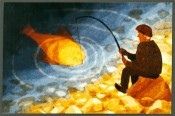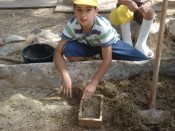 Association for a Healing Education
Association for a Healing Education Space speaks. Its language is movement.
Space speaks. Its language is movement. Everything a Teacher Needs
Everything a Teacher Needs ~ Ensoul Your World With Color ~
~ Ensoul Your World With Color ~ Immersive Academics and Arts
Immersive Academics and Arts Apply Today: New Cohort Starts Nov. 2025
Apply Today: New Cohort Starts Nov. 2025 Bringing Love to Learning for a Lifetime
Bringing Love to Learning for a Lifetime The Journey is Everything
The Journey is Everything Train to Teach in Seattle
Train to Teach in Seattle Caring for All Stages of Life
Caring for All Stages of Life Quality Education in the Heartland
Quality Education in the Heartland Flexible preparation for your new grade
Flexible preparation for your new grade
 Bay Area Teacher Training
Bay Area Teacher Training Jamie York Books, Resources, Workshops
Jamie York Books, Resources, Workshops Middle School Science With Roberto Trostli
Middle School Science With Roberto Trostli Great books for Waldorf Teachers & Families
Great books for Waldorf Teachers & Families Full-Time Teacher Education
Full-Time Teacher Education Transforming Voices Worldwide
Transforming Voices Worldwide Waldorf Training in Australia
Waldorf Training in Australia Summer Programs - Culminating Class Trips
Summer Programs - Culminating Class Trips Waldorf-inspired Homeschool Curriculum
Waldorf-inspired Homeschool Curriculum Roadmap to Literacy Books & Courses
Roadmap to Literacy Books & Courses
Would you like to become a sponsor?
Waldorf News

Self-directed play is disappearing in kindergartens
April 13, 2011
Supporting Self-directed Play arose out of two concerns. One is the disappearance of play in many countries around the world. The other concern is the danger of self-directed play disappearing in the practice of Steiner/Waldorf early childhood education. A quiet shift is taking place in Steiner/Waldorf early childhood practice away from a cornerstone of this work, the self-directed and open-ended play, towards more time spent in playful, outcome-oriented activities. The book originated in Australia as part of a three-year cooperative working that took place from 2006 to 2009 between Renate Long-Breipohl and teachers on the theme of self-directed play, called “The Play Project.” More »

The Fisherman and the Flounder by John Godfrey Saxe
March 28, 2011
Albert Einstein observed, "If you want your children to be intelligent, read them fairy tales. If you want them to be more intelligent, read them more fairy tales. When I examine myself and my methods of thought, I come to the conclusion that the gift of fantasy has meant more to me than any talent for abstract, positive thinking." If there was ever a fairy tale for our "post-excess" culture, "The Fisherman and the Flounder" is it. John Godfrey Saxe based it on the folk tale of "The Fisherman and His Wife." Transparencies by German puppeteer Andreas Geiger accompany the poem. More »

I Can't Think! The Twitterization of our culture has revolutionized our lives, but with an unintended consequence—our overloaded brains freeze when we have to make decisions.
March 7, 2011
Today, with Twitter and Facebook and countless apps fed into our smart phones, the flow of facts and opinion never stops. That can be a good thing, as when information empowers workers and consumers, not to mention whistle-blowers and revolutionaries. You can find out a used car’s accident history, a doctor’s malpractice record, a restaurant’s health-inspection results. Yet research like Dimoka’s is showing that a surfeit of information is changing the way we think, not always for the better. Maybe you consulted scores of travel websites to pick a vacation spot—only to be so overwhelmed with information that you opted for a staycation. Maybe you were this close to choosing a college, when suddenly older friends swamped your inbox with all the reasons to go somewhere else—which made you completely forget why you’d chosen the other school. Maybe you had the Date From Hell after being so inundated with information on “matches” that you chose at random. If so, then you are a victim of info-paralysis. More »

Shalaam Shalom: Teaching children in the Middle East pathways to peace
February 27, 2011
In Shfar’am, a lower Galilee city of over 30,000 Muslim, Christian and Druze Arab inhabitants, the first Arab Waldorf school, El Zeitoun, The Olive Tree, came into being because of Lana Nasrallah and other like-minded parents, who believed that an education for their children which embodies universal human values could become a unifying force in a society torn by a century of bloodshed and mistrust. El Zeitoun represents an exciting new educational direction arising from an inspired and empowered Arab community. According to Lana, El Zeitoun exists today because of Arab families dedicated to the welfare of their children: “A group of us gathered together looking for alternative education for our children. In almost every case, it was the mother who swayed the choice to put her child into El Zeitoun.” More »

Waldorf: From the Bottom Up
February 25, 2011
“Waldorf: From the bottom up” is what former Bundestag president Rita Sussmuth calls the movement that the Intercultural Waldorf School in Mannheim has started. The school, founded in 2003, educates poor and ultra-poor immigrant children alongside middle-class and upper middle-class children. Waldorf schools are considered fairly elitist. You wouldn’t expect to see children from lower-income or immigrant families there. Emil Molt, the director of the Waldorf Astoria cigarette factory wanted a new form of education for his workers’ children. He invited Rudolf Steiner to develop a school for these children. It was a revolutionary event; foreign languages starting in first grade, co-education, self-administration, and don’t forget – the exotic movement art of Eurythmy. And all of this was for “lower-class” children. More »
 Recent Jobs
Recent Jobs
View more jobs »
 Newsletter Archive
Newsletter Archive
 Join the Mailing List!
Join the Mailing List!
Stay Connected…
Each week receive the Waldorf News Weekly Update, full of news, events, and more. Keep abreast of what's happening with Waldorf education.
 RSS Feeds
RSS Feeds